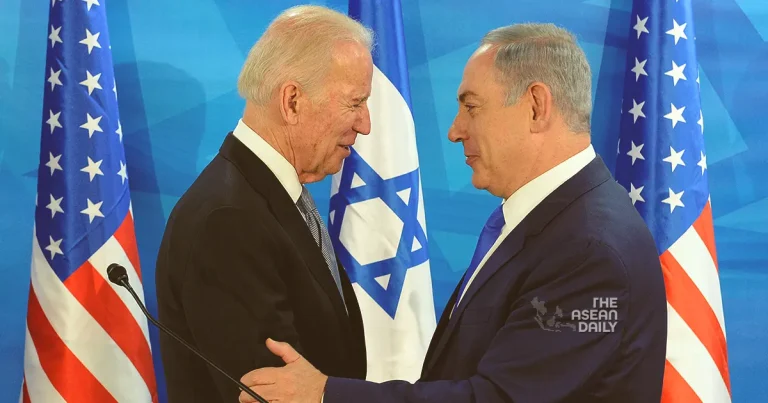10-10-2023 (WASHINGTON) President Joe Biden and Israeli Prime Minister Benjamin Netanyahu, who have had an uneasy alliance at the best of times, are facing a new test as Israel considers a potential ground assault on the Palestinian Gaza Strip. This development comes after a series of attacks by Hamas militants from Gaza into Israel, which has thrown these two leaders, with a history of strained relations, into a wartime partnership.
The relationship between the United States and Israel, historically strong, has seen some fraying recently. This was exemplified by the White House’s alignment with Israeli critics who have protested against the Netanyahu government’s efforts to limit the Supreme Court’s powers, thus reflecting a growing divergence between the two allies.
However, the differences between Biden and Netanyahu run deeper. President Biden has consistently advocated for the establishment of independent Israeli and Palestinian states, raising this point in every conversation with Netanyahu. He has also urged the Israeli leader to halt the expansion of Jewish settlements in the occupied West Bank.
In contrast, Netanyahu, who returned to office in late December, opposes Palestinian statehood in the near future and has approved the construction of thousands of new housing units for West Bank settlers. Their history is marred by tension, including Netanyahu’s unsuccessful efforts to derail a 2015 US-backed Iran nuclear deal during Biden’s time as vice president in the Obama administration.
During Donald Trump’s presidency, Netanyahu found a more aligned partner in the US, but he also refrained from taking sides in the US presidential campaign.
In the aftermath of the recent deadly Hamas attack, Biden set aside their differences in multiple phone calls with Netanyahu. He pledged unwavering support for Israel and mobilized to strengthen Israel’s military capabilities, even deploying a carrier strike group closer to Israel as a significant show of support. In his public statements, Biden refrained from urging restraint in Israel’s military response or expressing concern for the Palestinian people.
While Biden has allowed Netanyahu a degree of flexibility for now, policy differences persist, and there remains a possibility of change should the Gaza death toll continue to rise. As Israel intensifies its retaliatory strikes in Gaza, concerns are growing, with some US allies likely to publicly call for an end to the conflict if it drags on for an extended period.
Biden may also face the challenge of securing the release of Americans who may be held by Hamas as hostages. At home, he is under pressure from Republican hardliners who accuse him of emboldening Iran with a recent prisoner swap deal, as well as from fellow Democrats who question the military aid package received by Israel and advocate for greater support for the Palestinians.
The influential pro-Israel lobby, led by AIPAC, is a major force in US politics and is expected to play a role in the 2024 election. Although Biden and Netanyahu have spoken of their long friendship, their relationship has been strained, with Biden going months without talking to the Israeli leader this year. The two leaders found some common ground on US efforts to establish diplomatic relations between Israel and Saudi Arabia but were dealt a setback by the Hamas attack.
Despite the complex relationship, experts believe that President Biden’s commitment to Israel’s security remains unwavering. Aaron David Miller, a Middle East expert, noted that while Biden may not have a deep personal connection with Netanyahu, he is deeply committed to the state and people of Israel, and he will do what he can to protect them.




